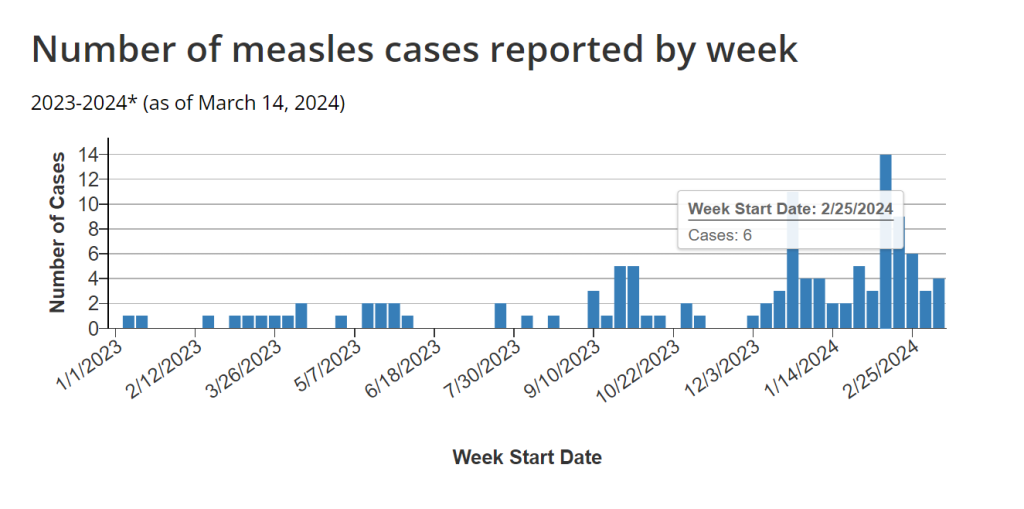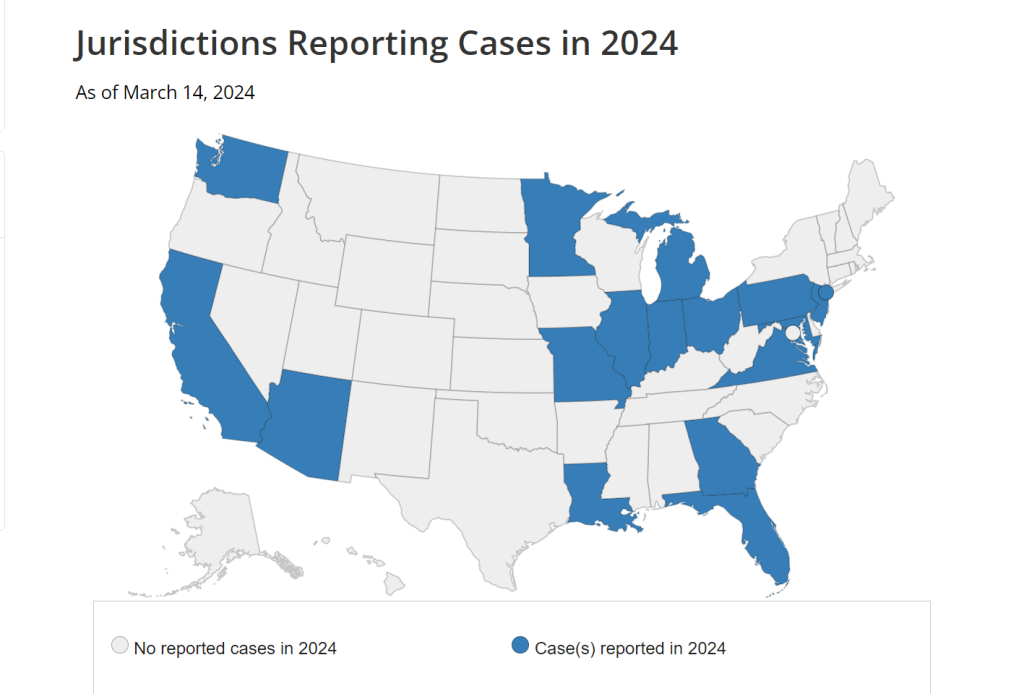Guidance Provided for International Travelers and Children Amid Rising Cases
The Centers for Disease Control and Prevention (CDC) has issued a Health Alert Network (HAN) Health Advisory about the increasing number of measles cases globally and in the United States. The advisory aims to provide guidance on measles prevention for international travelers aged six months and children aged 12 months who do not plan to travel internationally.

Measles, also known as rubeola, is highly contagious, with one infected person capable of infecting 9 out of 10 unvaccinated individuals they come in close contact with. From January 1 to March 14, 2024, the CDC reported 58 confirmed cases of measles across 17 jurisdictions in the U.S., including seven outbreaks in seven jurisdictions, including California. This marks an increase compared to the 58 total cases and four outbreaks reported throughout the entirety of 2023. Of the 58 cases reported in 2024, 54 (93%) were linked to international travel.
The majority of cases in 2024 have affected children aged 12 months and older who had not received the measles-mumps-rubella (MMR) vaccine. Several countries, including popular travel destinations like Austria, the Philippines, Romania, and the United Kingdom, are currently experiencing measles outbreaks.

There have been two outbreaks of measles in the Philadelphia area and in Florida in 2024.
To prevent measles infection and reduce the risk of community transmission, the CDC advises all U.S. residents traveling internationally, regardless of destination, to ensure they are up-to-date on their MMR vaccinations. Healthcare providers are also urged to ensure that children are current on routine immunizations, including MMR.
While the risk of widescale measles spread in the U.S. remains low due to high population immunity in most communities, pockets of low vaccination coverage leave some areas at higher risk for outbreaks.
Measles is a highly contagious viral illness that can lead to severe health complications, including pneumonia, encephalitis, and death, especially in unvaccinated individuals. Symptoms typically include fever, cough, runny nose, and pink eye, followed by a characteristic rash.
The decline in measles vaccination rates globally has contributed to increased outbreak risks worldwide, including in the United States. Measles cases continue to be imported into the U.S. by travelers infected while abroad, resulting in domestic outbreaks. Vaccination remains the most effective preventive measure against measles.
Individuals planning international travel should ensure they and their loved ones are vaccinated against measles before departure, regardless of the destination, to reduce the risk of infection.






















